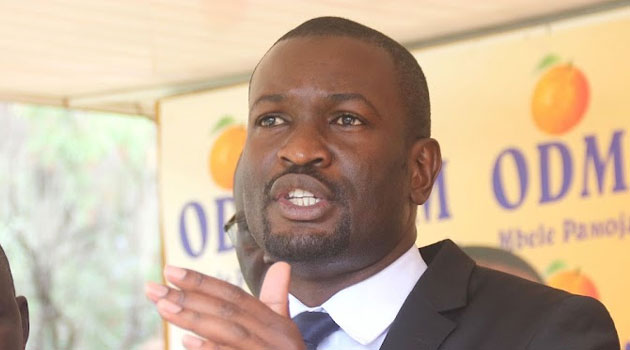- Details
- East Africa
- 678
He pointed out the irony of road users being charged toll fees on roads financed by their own taxes and fuel levies. Nairobi Senator Edwin Sifuna has voiced strong criticism of the recent proposal by Roads Cabinet Secretary Kipchumba Murkomen to impose toll charges on several roads across the country.
Currently, Nairobi Expressway is the only road in Kenya with toll charges, while the proposal to extend tolling to other roads is still under consideration.
Taking to his social media platform, Senator Sifuna expressed his disapproval, arguing that the government’s decision to toll these roads was unjustifiable given that taxpayers had funded their construction.
He pointed out the irony of road users being charged toll fees on roads financed by their own taxes and fuel levies.
“When you drive on these roads, you will see signs telling you that your taxes, AKA fuel levy, were used to build and maintain those roads. Ruto has built nothing. He cannot tax us for using our own roads,” Senator Sifuna stated.
These remarks by Senator Sifuna come in the wake of revelations made by Cabinet Murkomen, who indicated that the government was considering imposing tolls on frequently used roads as well as increasing fuel prices.
This move aims to secure sustainable funding for road maintenance, which has witnessed escalating costs.
Speaking during the launch of the Kenya National Highways Authority’s strategic plan for 2023-2027 in Nairobi, Murkomen explained the government’s rationale. He cited the successful implementation of tolls on the Nairobi Expressway as a precedent, suggesting that similar tolling mechanisms could be applied to other roads.
“The template is already there with what we did with the expressway. I believe we can toll the road from Athi River to Namanga, I believe that it is possible to toll the road from Galleria to Karen and Kiambu road,” said Murkomen.
He further clarified that individuals unwilling to pay toll fees would have the freedom to utilize alternative routes available to reach their destinations.
“The good news is that there are so many alternatives along these corridors that those who do not wish to pay toll fees will use,” added Cabinet Secretary Kipchumba Murkomen.
Some of the roads identified for potential tolling include Kiambu Road, Mombasa-Malaba Road, Galleria-Rongai Road, Sirare-Lodwar Road, as well as Athi River-Namanga Road.
These developments signal an ongoing debate about how to best manage road maintenance costs while considering the concerns of taxpayers and road users alike. By Phidel Kizito, Capital News






